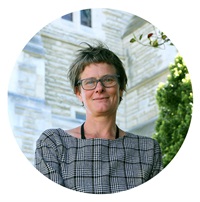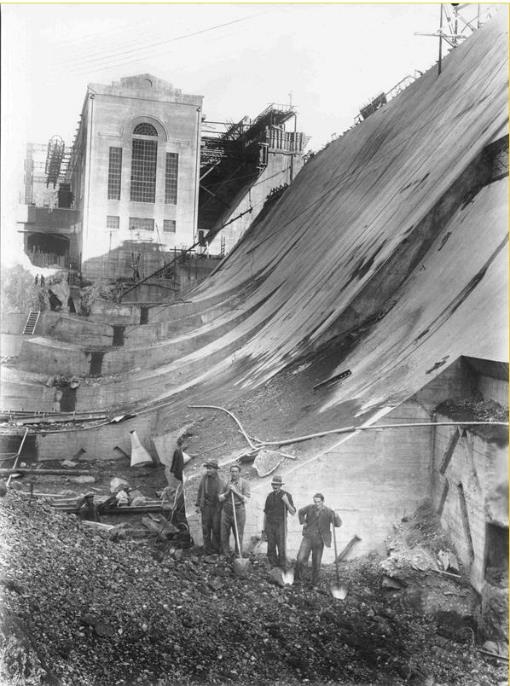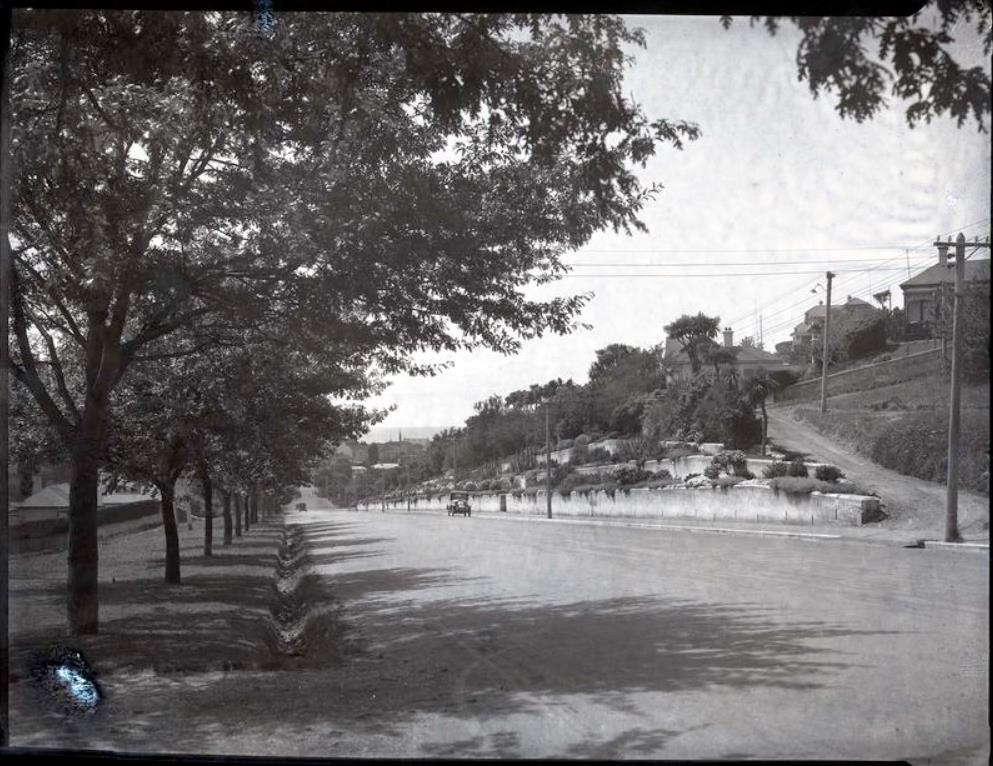History repeating? How an economic crisis changed Waitaki
Published on 01 April 2020

By Heather Bauchop, Heritage Advisor
The 1918 influenza epidemic saw a community response that looks familiar to us today: disruption, closures, delays, isolation.
And the government's responses to crisis can sound familiar. Shovel ready' projects were taken quite literally in the 1930s Depression. In Waitaki, workmen wielded picks, shovels and wheelbarrows to build the Waitaki Dam - the first large state hydroelectric scheme since Lake Coleridge (1911-1914). At its peak 1200 men laboured in often dangerous and freezing conditions; 350 houses and 700 huts sheltered them from the North Otago winters.
Waitaki Power House in 1930s (Collection of Waitaki District Archive)

The Ministry of Culture and Heritage's NZ history site describes the dam's 'true significance' as 'an incubator for Labour's social security scheme'. In 1928 a site-based Waitaki Hydro Medical Association contracted with the Waitaki Hospital Board to provide medical and ambulance services, paid for by a monthly deduction from wages. Dr David McMillan, 'the little doctor', and the Reverend Arnold Nordmeyer, both of whom entered Parliament at the 1935 election, based Labour's social security scheme on their Waitaki experience. The social security scheme changed lives for generations of New Zealanders. Radical thinking for radical times - an opportunity to reimagine the way we lived.
On a smaller scale, Douglas Terrace on Severn Street were faced with stone and planted in the 1930s - the work completed by unemployed men. The Oamaru Returned Soldiers' Association donated money towards the project supported by the Oamaru Beautifying Society - communities supporting each other in difficult times.
View from near Douglas Terrace along Severn Street toward Thames Street.c. 1930s

(Source: collection.culturewaitaki.org.nz/objects/166040/severn-street-oamaru)
The changes that Covid-19 has forced upon us, could provide our communities with a chance to rethink the way we want to live in the future.